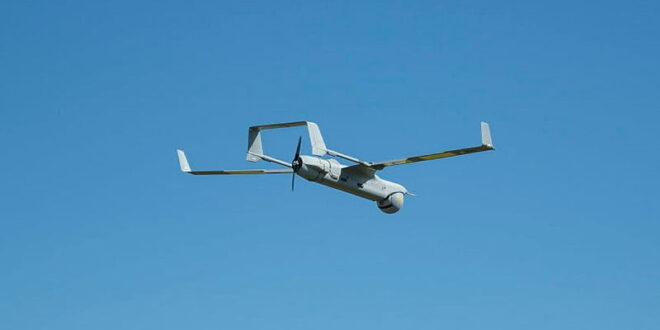The Defence department’s Advanced Strategic Capabilities Accelerator has signed contracts worth $1.21 million for the delivery of 11 different prototype drones as the next stage of its first innovation incubation challenge.
Defence Industry minister Pat Conroy said on Tuesday that 11 companies – all except one headquartered in Australia – will deliver prototype uncrewed aerial systems (UAS) for demonstration.
The 11 contracts are a first step towards potential procurement under the Sovereign UAS Challenge, with each company now expected to provide a demonstration of their working prototype to Defence officials in April.
The companies must also deliver a production plan “detailing how they would rapidly deliver their drones at scale for potential use by Defence and the Commonwealth”, the government said in a statement.
Each firm was contracted for $110,000 in mid-December. The businesses and the location of their headquarters are as follow:
- AMSL Aero – New South Wales
- Autonomous Technology – Western Australia
- Bask Aerospace – Victoria
- Boresight – Australian Capital Territory
- Crystalaid Manufacture – Queensland
- DefendTex Military Products – Victoria
- Edinburgh Drone Company – Scotland, United Kingdom
- Geodrones Australia – Australian Capital Territory
- Ichor Autonomy – Queensland
- SYPAQ Systems – Australian Capital Territory
- V-TOL Aerospace – Queensland
The aim of the Innovation Incubation Program is to identify “opportunities to partner with Australian industry and universities to rapidly adapt, test and acquire new or commercial technology for military purposes”, according to the Advanced Strategic Capabilities Accelerator (ASCA) website.
ASCA commenced the Sovereign UAS Challenge through a request for information (RFI) that concluded last August and which attracted about 250 responses.
Using the information gathered through the RFI alongside other sources of market intelligence, companies were invited under a limited tender to participate in the ‘fly-off demonstration’.
Small Uncrewed Aerial Systems are able to carry out low altitude surveillance tasks by Defence, as well as other Commonwealth agencies for training, photography, and survey tasks.
Developing a sovereign capability for UAS and other trusted autonomy systems is partly in response to the “security limitations and supply chain vulnerability of current commercial suppliers”, according to the initial RFI documents.
This includes moves to end the use of drones produced by Chinese firm DJI across the Commonwealth. In May 2023, the Home Affairs department and Defence suspended its use of DJI drones over security concerns.
Defence Industry minister Pat Conroy said that ASCA’s first innovation incubation challenge will “support some of our brightest minds in developing sovereign drone technology that can advance the future capabilities of the ADF”.
“This initiative is another example of how the Albanese government is getting on with the job of providing the ADF with state-of-the art technology while supporting the local defence industry, including small and medium sized enterprises,” Mr Conroy said.
“Investments in developing small and smart uncrewed aerial systems will not only further a sovereign drone industry, creating highly skilled jobs, but ultimately will increase the operational effectiveness of our military.”
ASCA began operations in July 2023 with a 10-year budget of $3.4 billion, mainly targeted at quickly developing and acquiring new sovereign capabilities through three year-long Missions. Defence is currently finalising its selection of the mission-lead organisations.
The Accelerator has committed 20 per cent of its budget to long-term research and development initiatives through the Emerging and Disruptive Technologies program. A Defence Industry Development Strategy is expected to be released soon.
There has also yet to be an announcement on the successful grant recipients under the second round of the Emerging Aviation Technology Partnership Program, administered by the Department of Infrastructure, Transport, Regional Development, Communications, and the Arts’, more than six months after it opened.
Do you know more? Contact James Riley via Email.
 Unmanned Aerial Vehicle The latest drone news
Unmanned Aerial Vehicle The latest drone news




